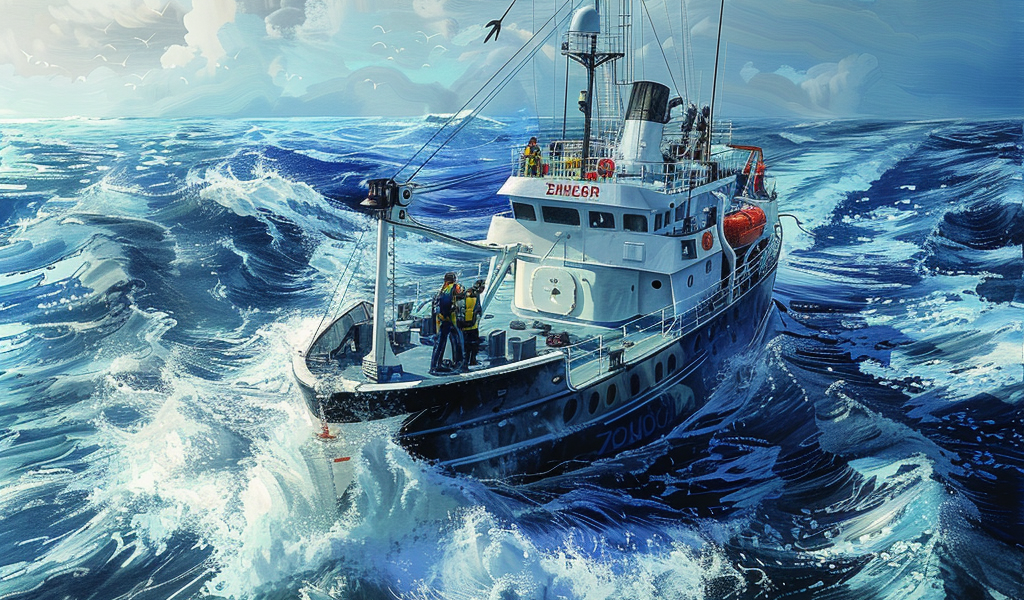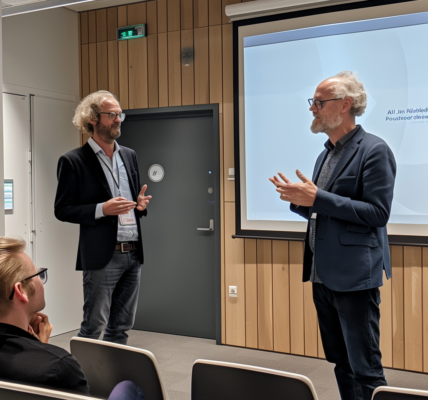In an ambitious effort to uncover the mysteries of the ocean, scientists from the renowned Senckenberg Research Institute and Natural History Museum are embarking on a significant expedition aboard the research vessel ‘Meteor.’ This journey will take them deep into the Atlantic Ocean, spanning the waters between North Africa and South America, and is set to continue until December 2024. The research team aims to explore depths of up to 6,000 meters, where they hope to discover previously unknown marine species.
The Senckenberg Society, which has a rich history dating back to its founding in 1817, is a prominent member of the Leibniz-Gemeinschaft, a network of leading research institutes in Germany. This organization is recognized globally for its contributions to the study of biodiversity across various ecosystems. The Society operates several institutions, including one of Europe’s largest natural history museums located in Frankfurt am Main, alongside publicly funded museums in Görlitz and Dresden.
While the museums serve to educate the public about nature and its wonders, the eight Senckenberg research institutes focus on advancing scientific knowledge regarding biodiversity. Recent studies conducted by these institutes have revealed critical insights into the importance of biodiversity in local ecosystems. For instance, a significant study conducted two years ago highlighted how diverse meadows play a vital role for various stakeholders, including local communities and the tourism industry. Research associate Sophie Peter noted, “We determined that all the groups surveyed were able to benefit from prolific biodiversity – including local residents through to tourism.”
The core mission of the Senckenberg Society is to investigate the role of biodiversity in the development of Earth’s systems, considering both historical and future perspectives. This includes a comprehensive analysis of the risks that biodiversity faces, as well as the potential impacts on human populations.
Notably, researchers from the Senckenberg Biodiversity and Climate Research Centre (SBiK-F), in collaboration with partner organizations, are actively engaged in the EU project “FirEUrisk.” This project focuses on the increasing risk of wildfires across Europe due to climate change. According to lead author Jessica Hetzer, their findings are concerning: “Even in the scenarios we calculated using the lowest CO2 increase, the mean summer wildfire risk due to weather in Europe up to 2050 rises by 24 percent compared with the historical average.”
As the expedition aboard the ‘Meteor’ progresses, the scientists are hopeful that their research will yield new discoveries that could enhance our understanding of marine biodiversity and its critical role in the health of our planet. The ongoing work of the Senckenberg Society underscores the importance of scientific inquiry in addressing the pressing environmental challenges we face today.
Through their dedicated efforts, the Senckenberg researchers are not only contributing to the scientific community but are also advocating for the preservation of biodiversity, which is essential for sustaining life on Earth. Their commitment to exploring the depths of the ocean reflects a broader objective: to understand and protect the intricate web of life that exists in our natural world.
As the expedition unfolds over the coming months, the scientific community and the public alike will be eager to learn about the discoveries that emerge from this deep-sea exploration. The implications of their findings could have far-reaching effects on conservation efforts and our understanding of how to mitigate the impacts of climate change on biodiversity.





